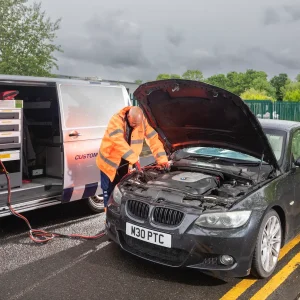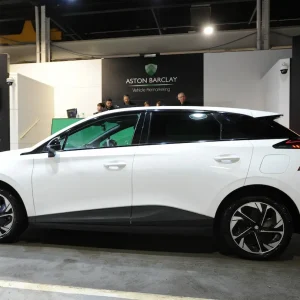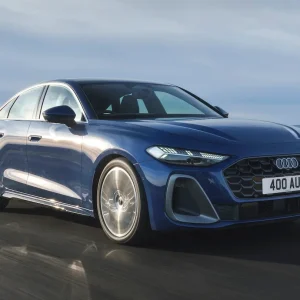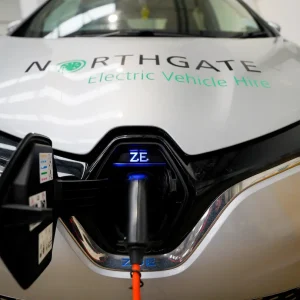The car scene is hotting up. One could even say it’s electrifying.
The IAA motor show in Frankfurt has seen a raft of new electric and hybrid car announcements with the number of models available in the UK set to double. Currently, Toyota/Lexus lead the way with four models and Honda with two but that’s all about to change with new French arrivals too.
The Toyota Prius plug-in hybrid, Honda CR-Z and Toyota Auris hybrid will be available within 12 months while in 2011 we’ll see a Lexus LF-Ch, a Honda Jazz hybrid and a Peugeot 3008 Hybrid4. Yes, that’s right, a Peugeot.
Newspaper adverts this week also feature an electric Peugeot BB1 project car. Measuring only 2.5 metres long, the BB1 concept car is capable of transporting four people and emits zero carbon emissions. Currently on a European promotional tour, it looks more like a squashed bug that’s just had a head-on accident.
Furthermore, in 2011, we’ll also see Europcar offering electric Renaults for rent ahead of the anticipated arrival of the Nissan Leaf a year later.
As I mentioned only last week, one major factor preventing the widespread uptake of electric vehicles is having a proper network infrastructure in place for re-charging these vehicles.
Government and, indeed local councils, will need to lead the way with initiatives if they want to ensure cleaner air in our towns and cities.
So far, we’ve had an announcement by the Energy Technologies Institute that a number of UK major cities are to gain charging points for electric and hybrid fuelled vehicles under an £11m development plan. Under the Joined-Cities Plan, ETI will initially set up charging points in a total of nine UK cities – Birmingham, Coventry, Glasgow, London, Middlesbrough, Milton Keynes, Newcastle, Oxford and Sunderland.
And, just this month, it was announced that the UK Department of Energy and Climate Change would be offering up to £7.2m of competitive funding in support of hydrogen and fuel cell technology development.
Meanwhile, besides lobbying governments worldwide, Nissan and Renault are planning nationwide ‘fast-drop’ battery centres by 2012 for their next-generation electric vehicles. These will see drivers have the option to exchange batteries, which will be leased rather than bought outright. Optimistically, a battery exchange time of five minutes is being quoted.
So electric car drivers could have the option of fast kerbside charges at public electric re-charging points, providing an 80% battery charge in 30 minutes, a battery swap at specialised dealers or outlets or a four to eight-hour overnight home charge.
With 43 breakdowns a day on UK motorways, owing to drivers running out of fuel, I would still expect that figure to skyrocket as electric vehicles crawl to a halt as their battery power fades. Perhaps, the emergency phones on the hard shoulders could also be converted to re-charging points for those in distress?
While the UK Government does not expect electric vehicles to appear as mass-market alternatives until 2017 at the earliest, Bosch estimates some 500,000 electric vehicles will be sold worldwide by 2015 and Renault believes its next-generation electric vehicle range will appeal to 30% of the buying public, predicting that by 2020 between 15 and 20% of cars could be electric.
In France, with its nuclear power stations, there is a much better support for the carbon-free electric car argument. In the UK, with predominantly coal-fired power stations supplying our national electricity grid, the argument becomes far more tenuous.
However, make of it what you will but if the necessary re-charging infrastructure is put in place, we can expect a silent revolution on the way.





